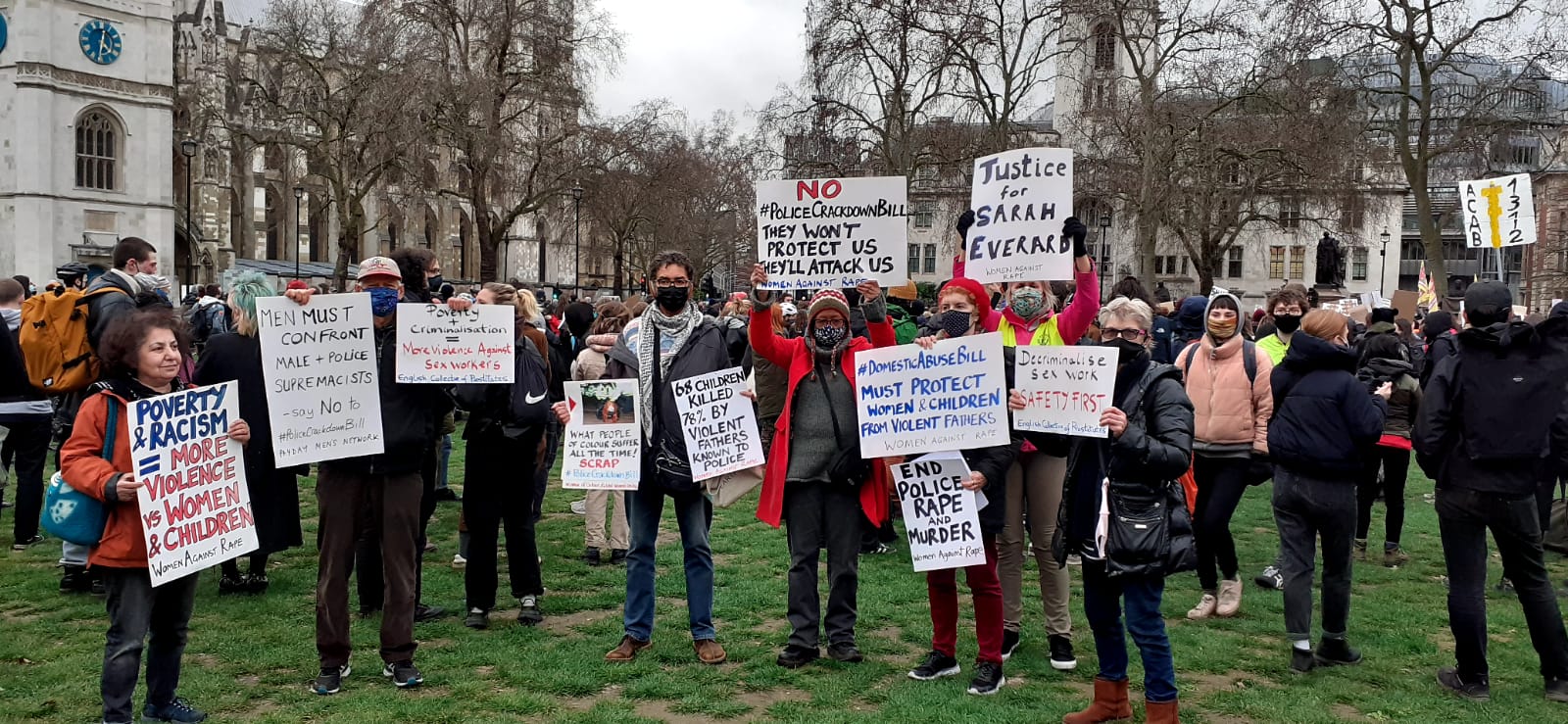
OPINION
Lisa Longstaff, Women Against Rape

Women Against Rape, protesting in Parliament Square - Credit: Women Against Rape
The strength of feeling provoked by Sarah Everard’s murder and the police response to women paying their respects remind us of the fury at the police killing of George Floyd.
It has shed new light onto the Police, Crime, Sentencing and Courts Bill and succeeded in delaying it.
The bill would end the right to protest by giving police unprecedented powers to ban “noise or disruption”, criminalise “trespass”, increase stop and search, and seize phones. It is aimed particularly at Gypsy, Traveller and Roma communities, Black Lives Matter, XR and anyone demanding justice – more like Hong Kong than UK.
The bill says nothing about violence against women. While rape sentences start at five years, damaging the statue of a slave holder could get you 10.
“Terrorists” would get longer sentences, but the daily terrorism women face on the street and at home (two or three women are murdered by a partner or ex-partner every week), is untouched.
Why have plain clothes cops spying on the public in bars when rape has been virtually decriminalized (under 1.4% are prosecuted) and what’s needed is thorough investigations of the violent crimes we report which never see a court room?
The outpouring of evidence of police misogyny is unprecedented. Women officers described routine sexual harassment: “Male officers will deliberately brush past female officers just so they can touch their breasts."
One said: “I know of many men in the police who commit domestic abuse.”
Another is suing the Met for sexist and racist abuse.
We have long known about officers expecting to have sex with victims – former police Chief Sue Fish said her male colleagues considered it a “perk of the job”.
A rape victim we worked with was terrified by an officer repeatedly propositioning her at her home.
Another who reported her police husband for serious domestic violence, faced an investigation so biased she emigrated.
This bill offers no protection from such police violence. Neither will it bring truth and justice to families, disproportionately of colour, who lost loved ones in police custody.
Some proposals to the bill are worrying, labelling sex work and porn as violence.
The English Collective of Prostitutes points out: why criminalise men who have not been reported for violence while the men women report aren’t investigated? Driving prostitution further underground would make it more dangerous for sex workers.
This bill opens the door to a police state. Ironically it is two women (Priti Patel and Cressida Dick) who are overseeing the state taking liberties by raising male police powers against anyone demanding their rights. But people are undeterred and determined to stop it.
